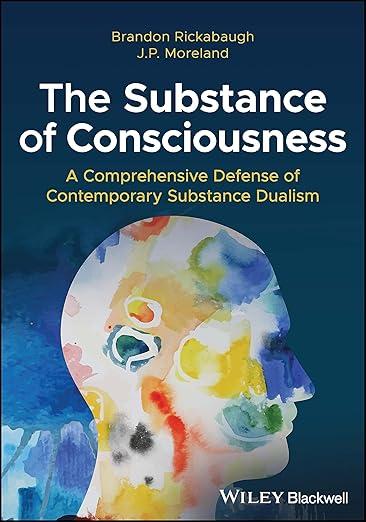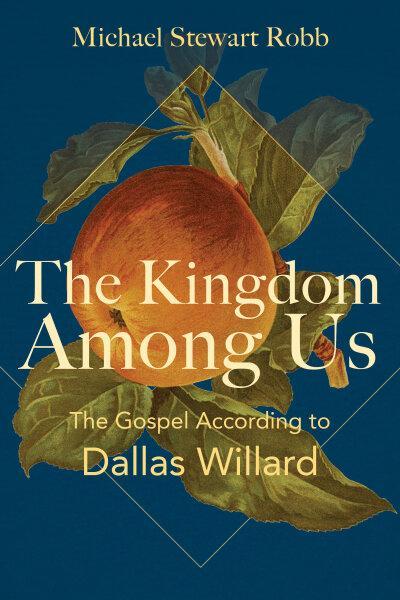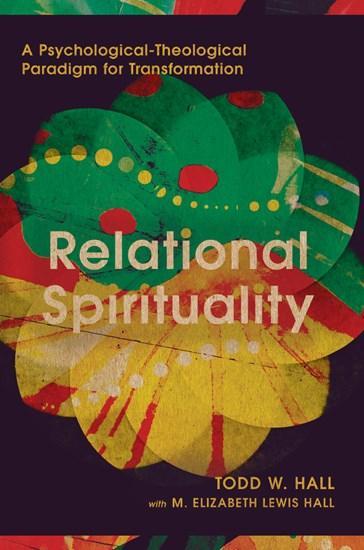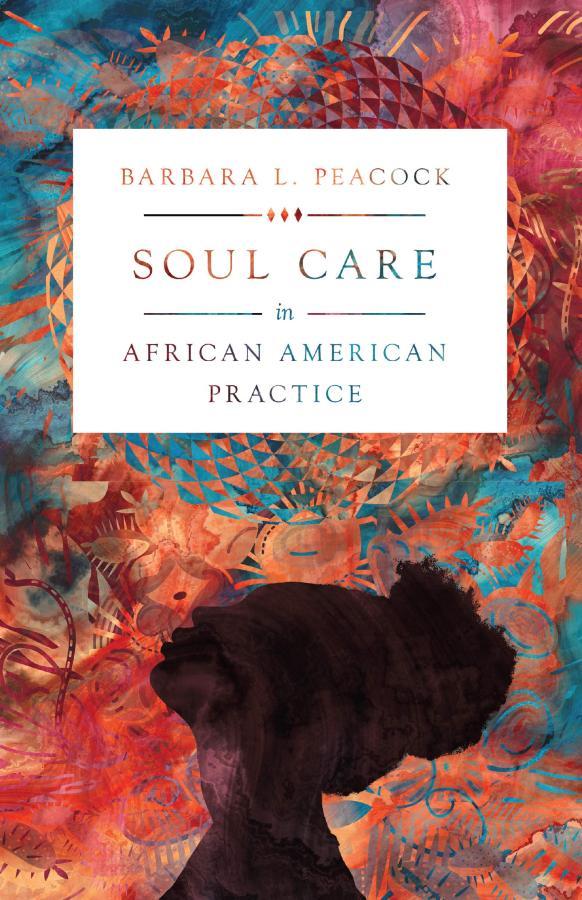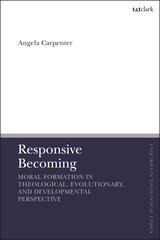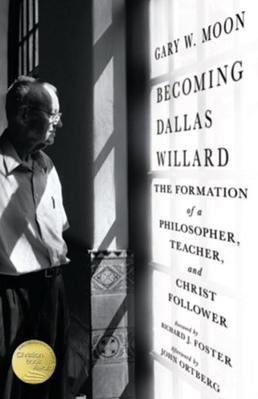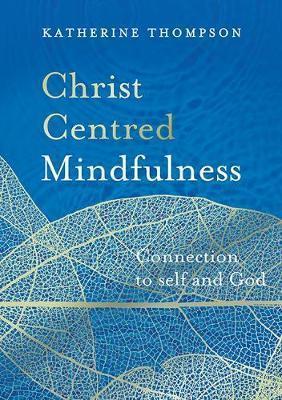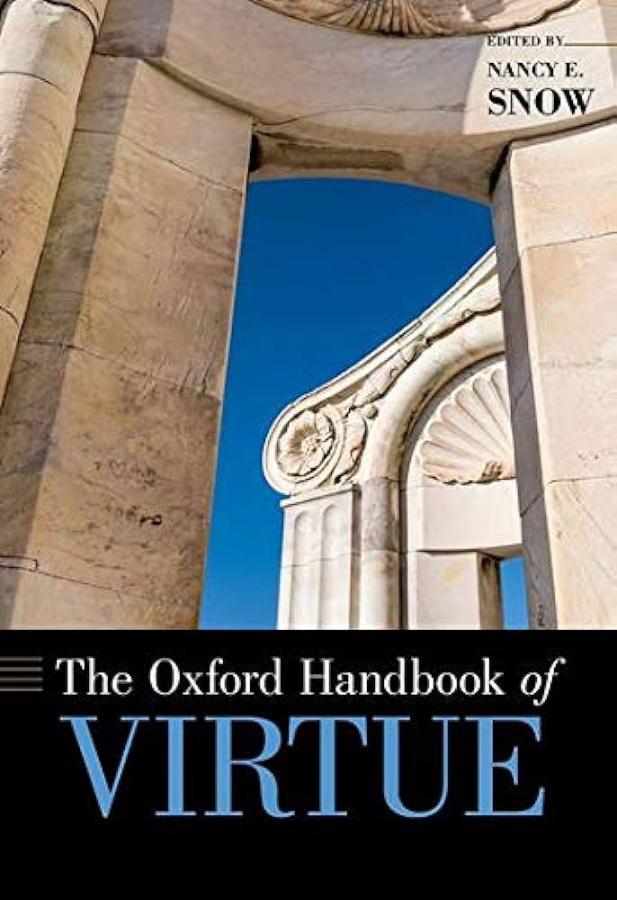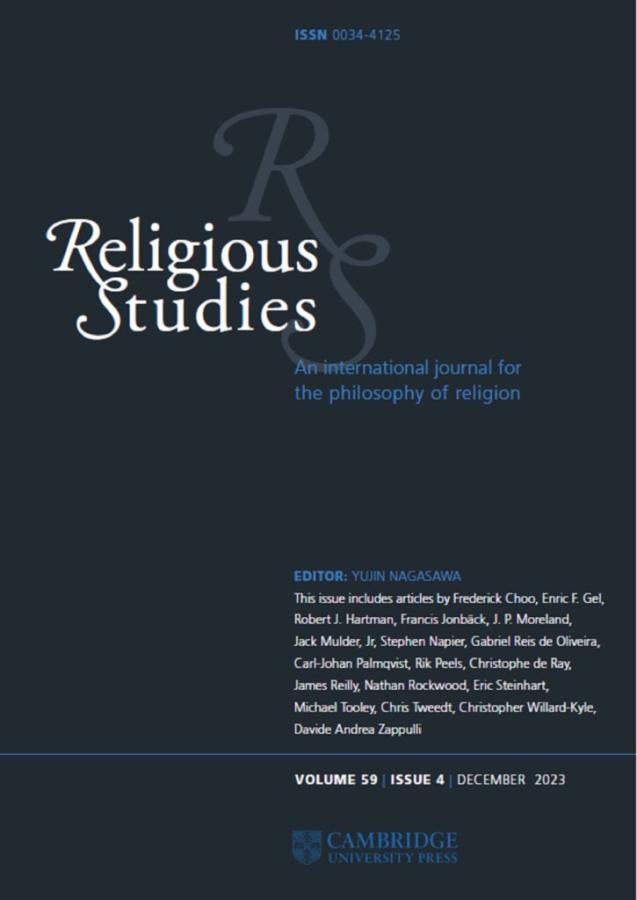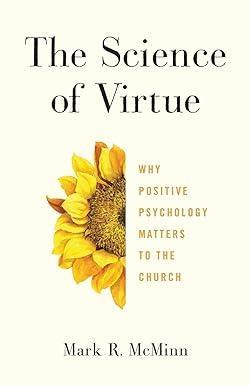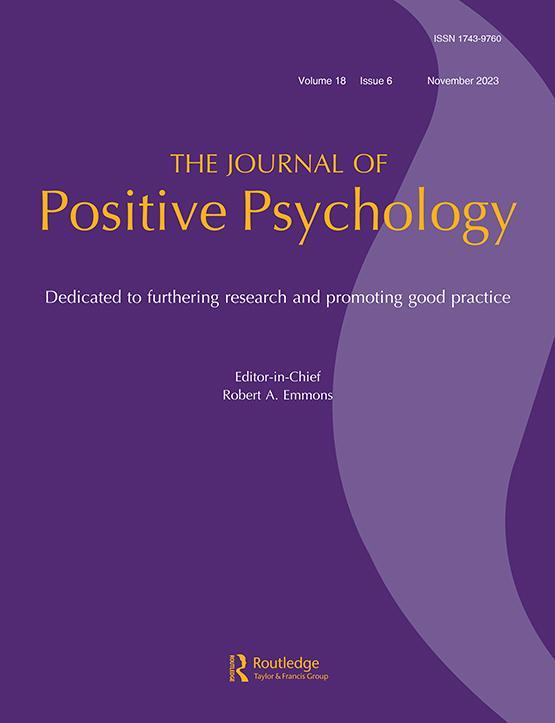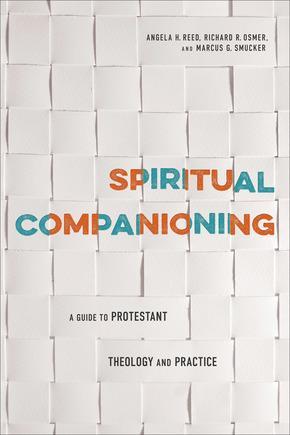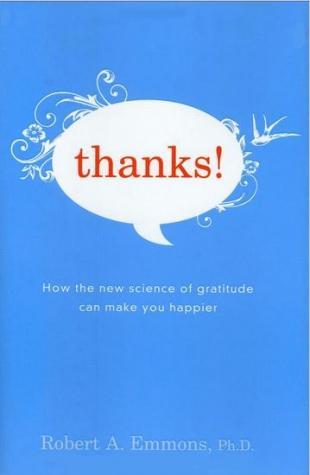Annual Book & Research Award
Dallas Willard (1935-2013) was a thinker, pastor, and author of such books as The Spirit of the Disciplines and The Divine Conspiracy. Now regarded as modern spiritual classics, these works have inspired thousands of ordinary Christians to become extraordinary Christ-followers, and have influenced an entire generation of writers and teachers, especially on Christian spiritual disciplines and formation.
The MIDWC Annual Book Award Program was created in 2015 to help place an enduring emphasis on the intellectual legacy of Dallas Willard by recognizing original work that shares his vision that invisible things such as soul, spirit, and the Kingdom of God are part of reality and can be known via experiential interaction. It is one way that the MIDWC works to promote and recognize exemplary scholarship, for the Christian spiritual formation movement and the broader academic and church communities, that is advancing one or more of Dallas' four primary concerns:
1. Robust metaphysical realism
2. Epistemological realism
3. The development of comprehensive, sophisticated, integrative models of the human person
4. The development of objective tests for different Christian formative practices that, in principle, can place these efforts in the domain of publicly assessable knowledge.
2024 Book Award Winners
The Substance of Consciousness: A Comprehensive Defense of Contemporary Substance Dualism by Brandon Rickabaugh and J.P. Moreland
Dr. Brandon Rickabaugh is Associate Professor of Philosophy, and Research Scholar of Philosophy of Technology and Culture at Palm Beach Atlantic University. He received his BA in philosophy from UC-Irvine, his MA in philosophy from the Talbot School of Theology at Biola, and his PhD in philosophy at Baylor University, where he won a prestigious fellowship that allowed him to interrupt his PhD work to study neuroscience for a year. He is the author or co-author of numerous articles and three books, most of which are about consciousness and the nature of the human person. One of those books (co-written with his mentor JP Moreland) is The Substance of Consciousness: a Comprehensive Defense of Substance Dualism, published by Wiley-Blackwell in 2023.
J. P. Moreland is Distinguished Professor of Philosophy at Talbot School of Theology, Biola University. He has authored, edited, or contributed papers to ninety-five books, including Universals (McGill-Queen’s), Consciousness and the Existence of God (Routledge), The Blackwell Companion to Natural Theology, The Blackwell Companion to Substance Dualism, and Debating Christian Theism (Oxford.) and, most recently, (with Brandon Rickabaugh) The Substance of Consciousness: A Comprehensive Defense of Contemporary Substance Dualism (Wiley Blackwell.) He has also published over one hundred articles in journals such as Philosophy and Phenomenological Research, American Philosophical Quarterly, Australasian Journal of Philosophy, MetaPhilosophy, Philosophia Christi, Religious Studies, and Faith and Philosophy. His writings have been translated into 14 languages. Moreland was selected in August 2016 and 2022 by The Best Schools as one of the 50 most influential living philosophers in the world. Academic Influence ranked Moreland as the 22nd most influential philosopher of religion, the 39th most influential metaphysician, and among the twelve most influential Christian apologists in the world. His books have been translated into 14 different languages.
Provost's Lecture by Brandon Rickabaugh: January 15, 2025
Chapel Talk by Brandon Rickabaugh: January 15, 2025
2024 Research Award Winner
“Eidetic Variation as a Source of Metaphysical Knowledge: A Phenomenological Contribution to Neo-Aristotelian Metaphysics” in Res Philosophica 100(3), 2023 by Dr. Liu Chang
2023 Book Award Winner
The Kingdom Among Us: The Gospel According to Dallas Willard by Michael Stewart Robb
Michael Stewart Robb is a Christian Educator, Theologian and the founder of Sanctus Institute. Michael's longstanding interest in how churches educate and edify their members in theology and spirituality began in 1999 and has guided his work ever since. To this end, he has always pursued the best education possible in the interest of giving it away to others. In 2012, he began researching the thought of American philosopher and spiritual writer Dallas Willard and in 2022, he published The Kingdom Among Us on Willard’s theology.
The Kingdom Among Us presents a comprehensive account of Dallas Willard's theology. By examining Willard's writings and hundreds of hours of audio recordings, Michael Stewart Robb both recovers and expands Willard's theological vision of the kingdom among us. Readers will encounter a complete picture of one of the giants of modern spirituality.
Provost's Lecture by Michael Stewart Robb: Sept. 5 '24
Chapel Talk by Michael Stewart Robb: Sept. 6 '24
2023 Research Award Winner
“Value Perception and Spiritual Perception in Max Scheler” in Aquino and Gavrilyuk (eds.) Perceiving Things Divine: Towards a Constructive Account of Spiritual Perception by Mark K. Spencer
2022 Book Award Winners
Relational Spirituality: A Psychological-Theological Paradigm for Transformation by Todd W. Hall with M. Elizabeth Lewis Hall
Todd W. Hall (PhD, Rosemead School of Psychology) is professor of psychology at Rosemead School of Psychology at Biola University, where he teaches courses on the integration of psychology and theology, psychodynamic psychotherapy, and positive psychology.
He is a faculty affiliate at the Harvard Human Flourishing Program at Harvard University and a founding partner at Flourishing Metrics. Hall is an award-winning researcher, focusing on relational approaches to spirituality, virtue, and leadership. He is a coauthor of Psychology in the Spirit and Relational Spirituality, developer of several widely used spiritual assessments, and codeveloper of the Flourish Assessment.
Provost's Lecture by Dr. Todd W. Hall
Chapel Talk by Dr. Todd W. Hall
2022 Research Award Winner
“The Calculating Spirit: Theological Anthropology and the Measuring of Spirituality" by Bruce Hindmarsh in the Journal of Spiritual Formation and Soul Care 14:2 (2021)
2021 Book Award Winner
Soul Care in African American Practice by Dr. Barbara L. Peacock
Barbara L. Peacock (DMin, Gordon-Conwell Theological Seminary) is a spiritual director, author, teacher, and preacher. She is the founder of Barbara L. Peacock Ministries, a ministry committed to developing disciples through prayer, spiritual direction, soul care, mentoring, and teaching.
Barbara Peacock’s Soul Care in African American Practice was selected because it is a rich and loving
reflection on the spiritual practices that “have been woven into the fabric of the African American
culture.” Dr. Peacock focuses on three practices in particular – prayer, spiritual direction and soul care
–as manifested in the life and thought of ten African American men and women, historic and
contemporary: Dr. Frederick Douglas, Dr. Martin Luther King, Jr., Mrs. Rosa Parks, Dr. Darrell Griffin, Dr.
Renita Weems, Dr. Harold Carter, Dr. Jessica Ingram, Mrs. Coretta Scott King, Dr. James Washington and Dr. Howard Thurman. She shows how these African American Christians forged their profound and distinctive approaches to these practices, often in bondage and oppression, to nourish a faith that can sustain the soul.
Provost's Lecture by Dr. Barbara L. Peacock
Chapel Talk by Dr. Barbara L. Peacock
2021 RESEARCH Award Winner
“The Epistemic Significance of Emotional Experience” by Dr. Brian Ballard on Emotion Review vol. 3, no. 2 (2020)
2020 Book Award Winner
Responsive Becoming: Moral Formation in Theological, Evolutionary, and Developmental Perspective by Angela Carpenter
Angela Carpenter (Ph.D., University of Notre Dame) is Assistant Professor of Religion at Hope College, Holland, MI.
Dr. Carpenter's book was selected because it retrieves a distinctive, experientially informed account of the human spiritual and moral formation that Christians call "sanctification." In it, she provides the foundation for a constructive account of formation that is attentive both to divine grace and to the significance of natural, embodied processes. She describes her approach as having two prongs: first, an excavation of reformed thinkers Calvin, Owen, and Bushnell, and second, a consideration of human nature through interdisciplinary dialogue with the human sciences. The final result is an account according to which sanctification is "a loving response to God, which is always enabled by God's love in Christ and the Spirit" and "which is fundamentally about our restoration to the image of God."
The judges praised it for its clear exposition of different perspectives, its combination of scholarly depth and accessibility and for breaking new ground in crossing over between the often hostile fields of theology, psychology, and human development. The conclusions are pioneering and compelling and admirably explore the complexity of the human person, consistent with the main concerns of the Dallas Willard Book Award.
Provost's Lecture by Dr. Angela Carpenter entitled "Dependent Creatures: How Human Evolution Can Help Us Understand God's Grace"
2020 Book Award Winner
“Temptation, Virtue, and the Character of Christ” by Adam C. Pelser in Faith and Philosophy Vol. 36, No. 1, 2019
Dr. Adam Pelser's paper was selected out of a field of nominated articles by a panel of judges who praised it in particular for touching on Dallas Willard's concerns (1)-(3), but especially for demonstrating the relevance of sophisticated philosophical thought to a matter of great interest and import to all Christians. Prof. Mark Nelson, Director & Faculty Liaison to the DWRC described it as "an excellent example of how careful philosophical reflection on virtue can shed light on Christian theology and scripture interpretation in ways that have potential to build up individual believers."
Dr. Pelser (Ph.D., Baylor University) is associate professor of philosophy at the U.S. Air Force Academy in Colorado Springs, CO.
2019 Book Award c0-Winners
Becoming Dallas Willard, The Formation of a Philosopher, Teacher, and Christ Follower by Gary Moon
Gary W. Moon, M.Div. Ph.D. served as the founding Executive Director of the Martin Institute and Dallas Willard Center at Westmont College. He continues to serve as a Senior Fellow of the Martin Institute and Director of Conversatio Divina.
Gary also serves as Distinguished Professor of Psychology and Spiritual Formation at Richmont Graduate University in Atlanta. He served as the founding director of the Renovaré International Institute for Christian Spiritual Formation and as a founding editor of the Conversations Journal.
In Gary W. Moon’s candid and inspiring biography, we read how Willard became the person who mentored and partnered with his young pastor, Richard Foster, to inspire some of the most influential books on spirituality of the last generation. We see how his love of learning took him on to Baylor, the University of Wisconsin, and the University of Southern California, where he became a beloved professor and one of the most versatile members of the philosophy department.
The life of Dallas Willard deserves attention because he became a person who himself experienced authentic transformation of life and character. Dallas Willard not only taught about spiritual disciplines, he became a different person because of them. He became a grounded person, a spiritually alive person as he put them into practice, finding God, as he often said, "at the end of his rope." Here is a life that gives us all hope.
Chapel Talk by Gary W. Moon
Christ-Centred Mindfulness, by Katherine Thompson
Katherine Thompson works in the area of mental health as a therapist, lecturer, author and researcher. She is passionate about supporting young people with mental health challenges to live their best lives, and seeks to encourage people in ministry to thrive in their role. She currently divides her time between her work as a mental health social worker and therapist in private practice, and as a senior lecturer in mental health and wellbeing.
In the award-winning Christ Centred Mindfulness, leading academic and experienced mental health worker Dr Katherine Thompson addresses these questions and draws on the rich Christian tradition to present Christian mindfulness exercises that help us slow down, connect to what is happening inside ourselves, and make space to listen for God’s guidance in everyday life.
2019 research Award Co-Winners
"Eudaimonism" by Mark LeBar in The Oxford Handbook of Virtue
Mark LeBar is Professor of Philosophy at Florida State University. He works in moral, social, and political philosophy. Mark has a Ph.D. in philosophy from the University of Arizona, an MA in philosophy from the University of Washington, and an MBA from Pepperdine University. He received his bachelor's degree in Philosophy and English from Westmont College in Santa Barbara, CA. He enjoys working with undergraduates as well as helping graduate students create their own projects.
"The Evidential Force of Spiritual Maturity and the Christian Doctrine of Sanctification", by Steven Porter in Religious Studies 55:1 (2019)
Steven L. Porter, Ph.D, is Senior Research Fellow and Executive Director of the Martin Institute at Westmont College. Steve remains an affiliate Professor of Theology and Spiritual Formation at the Institute for Spiritual Formation and Rosemead School of Psychology (Biola University). Steve received his Ph.D. in philosophy at the University of Southern California under Dallas Willard and M.Phil. in philosophical theology at the University of Oxford.
His areas of interest include theological methodology, the doctrine of sanctification, philosophical theology and the integration of psychology and theology. He has contributed articles to the Journal of the Evangelical Theological Society, Philosophia Christi, Faith and Philosophy, Journal for Psychology and Theology.
2018 Book Award winner
The Science of Virtue: Why Positive Psychology Matters to the Church by Mark R. McMinn
Mark McMinn received his undergraduate degree from Lewis and Clark College and a PhD in clinical psychology from Vanderbilt University. He is Professor and Director of Faith Integration in the Graduate School of Clinical Psychology at George Fox University. His current research interests include the integration of psychology and Christianity, positive psychology, and technology in psychology practice. Mark writes software, including apps for mobile devices.
Chapel Talk by Mark McMinn
2018 research Award c0-Winners
"Neuroscience, Spiritual Formation, and Bodily Souls: A Critique of Christian Physicalism" by Brandon Rickabaugh and C. Stephen Evans in Christian Physicalism? (Lexington) edited by R. Keith Loftin and Joshua Harris
Brandon Rickabaugh is a doctoral candidate in the Department of Philosophy at Baylor University, a fellow of the SCP's Fellowship for Science Cross-Training (neuroscience), and a scholar in the Conyers Graduate Scholars Program at Baylor University.
Stephen Evans is a professor of philosophy and humanities at Baylor University and earned his Ph.D. from Yale University.
2017 Book Award winner
You Are What You Love - The Spiritual Power of Habit by James K.A. Smith
James K. A. Smith (PhD, Villanova University) is a popular speaker who has written many books, including On the Road with Saint Augustine, You Are What You Love, Desiring the Kingdom, and Who's Afraid of Postmodernism?--all Christianity Today Book Award winners. He is professor of philosophy at Calvin University in Grand Rapids, Michigan, where he holds the Gary and Henrietta Byker Chair in Applied Reformed Theology and Worldview. He was editor in chief of Comment magazine from 2013 to 2018 and is now editor in chief of Image, a quarterly journal at the intersection of art, faith, and mystery. Smith has written for Christianity Today, the Christian Century, the New York Times, the Wall Street Journal, USA Today, and the Washington Post.
Chapel Talk by James K.A. Smith
2017 research Award Winner
"Virtues and Belief in God" by Robert C. Roberts in The Journal of Positive Psychology 12:5 (2017)
Robert C. Roberts is a retired professor from Baylor University’s philosophy department. Previously, he had taught philosophy at Western Kentucky University (1973–1984) and Wheaton College in Illinois (1984–2000).
Since being inspired, in the late 1960s, by the teaching of Paul L. Holmer at Yale, Robert has been interested in moral psychology, with focus on the emotions and their involvement in human virtues. Also under Holmer’s inspiration, he pursued these themes within a Christian framework, but viewed them as continuous in many ways with the thought of ancient and modern pagans. Like the ancients, both pagan and Christian, and like Kierkegaard and Wittgenstein more recently, he thinks of moral psychological thinking as contributing to character formation and formation in wisdom of persons who engage in it in a certain way and of those whose minds are appropriately affected by the thinkers’ reflections.
2016 Book Award winners
Spiritual Companioning by Angela Reed, Richard Robert Osmer, and Marcus G. Smucker
Chapel Talk by Angela Reed
2016 research Award Winner
"The Husserlian Roots of Dallas Willard's Philosophical and Religious Works" by Greg Jesson
2015 Book Award winner
Thanks! How the New Science of Gratitude Can Make You Happier by Robert Emmons
Chapel Talk by Robert Emmons
